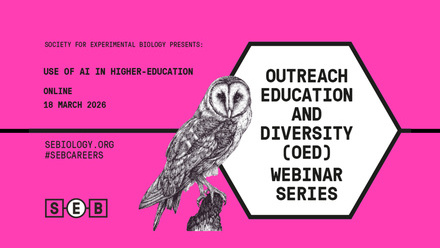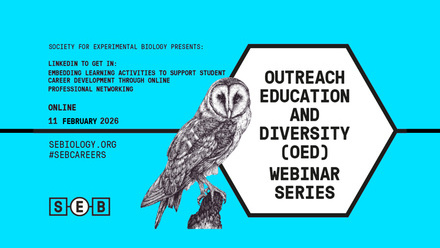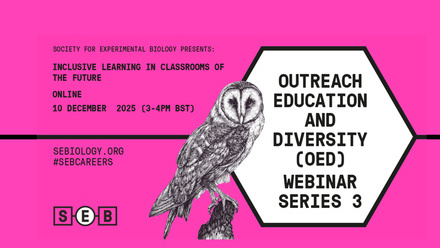Join the "Decolonising & Diversifying the Biosciences Education" symposium in december

The team are hosting this symposium to not only highlight the issue of single dimensional delivery of biosciences content; but to ensure that the values and good practices of equality, diversity, and inclusion (EDI) are upheld and visible.
The symposium seeks to inform biosciences educators of good practices in decolonisation and not to simply diversify the curriculum by increasing the contributions of People of Colour in the biosciences. At present, biosciences education is still dominated by a one-dimensional, Caucasian approach to teaching which has typically not included a holistic view of the field. Global challenges such as climate change and antimicrobial resistance should be considered in a “One Health” and truly global approach where low to middle income countries’ opinions are valued, alongside high-income countries for example. Good practices could include changes in language associated with peoples’ identities and creed; examples of broader thinking in how educators and students currently interpret decolonisation; self-reflection; teaching and understanding history of biosciences and identifying current inequalities that students/staff face.
Examples of good practice will be shared with the greater aim of empowering the next generation of students to embrace cultural and racial differences in their teaching groups and, after graduation, within society. While we appreciate small steps are key in creating a larger shift in the outlook of biosciences education, it is simply not enough to have, for example, included a range of skin tones with your teaching to show diversity and decolonisation. Decolonisation is so much more than this; it is ensuring that the teaching content is put into the context of social injustice, racial biases, and highlights that the “colonial way” of thinking is not the only way forward. Colonialism must be put into context here; this was the brutalisation and subjugation of a group of peoples’ and cultures across the globe, with the eradication of knowledge and their history to establish the supremacy of Western Europe.
Knowledge exchange goes both ways. The next generation of graduates will be taught that the opinions and values of others, especially those who may look different or speak differently to you, are equally as valid as your own. This is part of our academic contribution to society; with the aim of sending out graduates who can interact with equality and inclusivity and treat others with dignity. That is why we are excited about the Symposium as while we are encouraging knowledge exchange, we are also seeking ideas about how to build on the small steps to foster a wave of change across all topics within the Biosciences. This in turn could have further positive impacts on students who are of a minority by increasing their aspirations and confidence in navigating difficult areas.
Interestingly, decolonisation of the education curriculum has recently come under significant negative scrutiny in the media. Critically, the core concepts of decolonisation and diversifying education appear not to be fully understood in the public sphere; hence why it is so important that we showcase examples of ways to increase decolonisation and highlight areas where we need to do much more. This is not about removing Caucasian voices from the curriculum; it’s about adding diversity to those voices that are already there. Being silent and with inaction on these important societal issues makes us all complicit in ignoring racism, microaggressions and the biases many people face daily. It’s important to have these conversations even if they can be uncomfortable. Unconscious bias tends to be an important factor influencing the delivery of education to the next generation. We, as educators, often do not realise that our own intrinsic biases and prejudices can bleed into our pedagogy; thus, by recognising these biases, educators can seek to embed effective EDI strategies into their pedagogy to deliver a modernised biosciences curriculum to a digitally savvy and highly connected Generation Z.
The world is comprised of people from a rainbow of backgrounds; this is something that makes, and has made, our society and our species so rich and successful. Including these concepts in education should be a joyous prospect; we encourage all biosciences educators to partake in the Symposium and share our passion for contributing to an equitable and inclusive academy.




